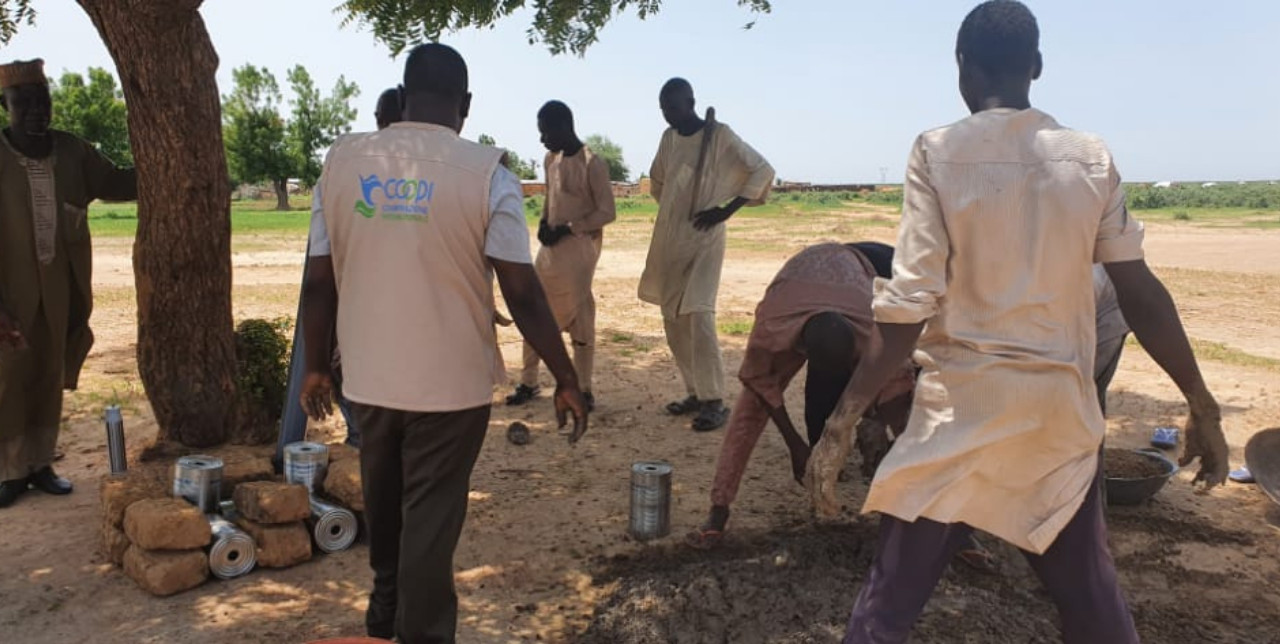30-10-2025 | di COOPI
Nigeria. Building Resilience from the ground in Yobe State
In the plains of Potiskum, Yobe State in the Northeast of Nigeria, the inhabitants have lived through extreme weather cycles—intense flooding followed by long dry spells. These natural hazards, compounded by deforestation, unsustainable land use, and rapid population growth, have accelerated land degradation and reduced agricultural productivity. To respond to these challenges, COOPI – Cooperazione Internazionale, with funding from the Federal Ministry for economic cooperation and development of Germany (BMZ) and the World Food Programme (WFP), has launched in July 2025 the project “Resilience and Social Cohesion in Northeast Nigeria”. The program aims to strengthen food security, restore degraded ecosystems, and foster peaceful coexistence ensuring that interventions are grounded in community priorities.
In order to do that, COOPI commissioned a study, “Hydro-Climatic and Ecological Landscape Assessment”, in collaboration with Yoblex Consulting. This study combined scientific analysis with local knowledge through geospatial mapping, soil testing, and extensive community consultations. Its findings revealed two critical zones of vulnerability: upland areas suffering from erosion and deforestation, and lowlands prone to flooding and water scarcity.
The assessment produced a community roadmap for action. Ten communities were prioritized based on hydrological stress, socio-economic vulnerability, and potential impact. Solutions include the construction of small earth and check dams for water harvesting, half-moon structures for soil moisture retention, and targeted erosion control measures. Each intervention was reviewed and approved by the communities themselves, ensuring ownership and long-term sustainability.
The project funded by BMZ/WFP goes beyond environmental rehabilitation. It integrates sustainable livelihoods, nutrition, and social cohesion into a single framework. Over 20,000 beneficiaries—across more than 4,000 households—will be reached through climate-smart agriculture, the creation of Village Savings and Loan Associations (VSLAs), income-generating activities, and nutrition support for pregnant and lactating women and children under five.
Through these initiatives, COOPI is not only restoring degraded land but also creating economic opportunities, especially for women and youth. By strengthening natural resource governance and promoting equitable access to water and land, the project helps to reduce tensions between farmers and pastoralists, reinforcing peace and cooperation. By investing in community-led, nature-based solutions, the project seeks to turn environmental challenges into opportunities for growth. As Potiskum’s residents begin to harvest water, rehabilitate their lands, and rebuild livelihoods, they are also rebuilding hope trough new economic possibilities.
COOPI has been present in Yobe State in Nigeria since 2019 and has since been implementing multi-sectoral food security and livelihood projects that complement the peacebuilding program. These programs aim to improve the economic status of households through livelihood activities such as the introduction and strengthening of Community Savings and Credit Associations.




 Nigeria
Nigeria